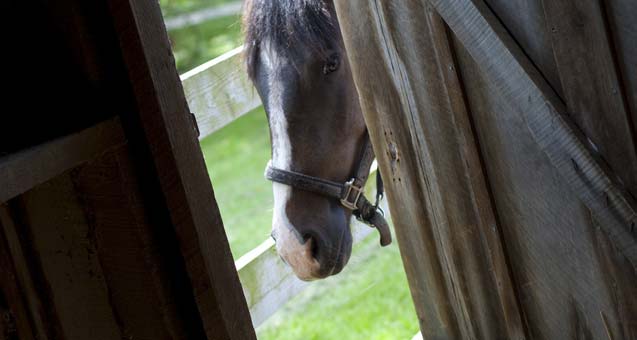
Support justice-driven, accurate and transparent news — make a quick donation to Truthout today!
Idaho became the latest state to pass an “ag-gag” law, punishing whistleblowing in animal agriculture, just this past February. In March, it became the latest state to get sued for doing so, when a coalition of animal activists, journalists, workers’ rights groups, environmental organizations and civil liberties defenders came together to challenge the law in a federal lawsuit. Now, the Center for Constitutional Rights (CCR) is joining the coalition, filing a brief that outlines several ways Idaho’s ag-gag law violates the First Amendment.
Since 2006, we have represented environmental and animal rights activists in both criminal and civil litigation against an onslaught of prosecutions and laws aimed at suppressing their activism. Over the course of these eight years of litigation, it has become increasingly clear that what animal agriculture, vivisection labs, the fur industry and other so-called “animal enterprises” fear most is not illegal protest activity like vandalism and harassment, but rather the public exposure of their practices and the resulting lost profits when consumers are horrified by what they see. Though property destruction, threats, trespassing and fraud are already criminalized by multiple state and federal laws, animal industries have pushed hard to enact designer legislation that provides them special protection from unlawful and lawful protest activity alike.
CCR is currently challenging the federal Animal Enterprise Terrorism Act (AETA), which punishes causing the loss of any property – including profits – to a business that uses or sells animals or animal products. Documents obtained through the Freedom of Information Act reveal that the FBI has characterized undercover investigators as “terrorists” subject to prosecution under the AETA. Likewise, ag-gag laws seek to protect the profits of animal industries by silencing those who would expose and oppose these industries’ use and abuse of animals. Idaho’s law in particular punishes recording inside of or obtaining records from an agricultural production facility and obtaining employment through “misrepresentation” “with the intent to cause economic or other injury to the facility’s operations . . . owners . . . [or] business interests . . . .” In short, both federal and state laws target the central goal of animal rights activists: to expose animal industries to the public and encourage consumers to stop supporting these industries.
It is no coincidence that the push to pass Idaho’s ag-gag law followed an investigation by Mercy for Animals on an Idaho dairy farm. An undercover activist recorded workers kicking and punching cows in the head, jumping up and down on their backs and dragging a cow by her neck with a tractor. The internet abounds with such footage – approximately 80 undercover investigations in the past decade document gratuitous abuse like the acts recorded in Idaho, standard industry practices like mutilations and intensive confinement and ostensibly “humane” facilities that are nothing of the sort. The industry knows that its attempt to paint the footage as the acts of a few bad apples is bound to fail, and that animal activists could conduct hundreds of investigations inside hundreds of facilities and come out with hundreds of hours of equally disturbing footage.
The industry is right to fear public outrage. But the problem is not the documentation of this violence, but the violence itself – which puts animal agriculture in a bit of a bind. When the very basis for your industry is violence, keeping the public in the dark takes on paramount importance. But in this new era of information freedom, the industry cannot maintain the secrecy to which it so desperately clings. The US Constitution does not allow animal agriculture to hide behind whistleblower bans. Idaho’s ag-gag law violates the First Amendment, as will any attempt to specifically target animal rights activists for successfully – and continually – shining a light on this industry. That’s why, in due time, Idaho will be the latest state to have its ag-gag law struck down as unconstitutional.
A terrifying moment. We appeal for your support.
In the last weeks, we have witnessed an authoritarian assault on communities in Minnesota and across the nation.
The need for truthful, grassroots reporting is urgent at this cataclysmic historical moment. Yet, Trump-aligned billionaires and other allies have taken over many legacy media outlets — the culmination of a decades-long campaign to place control of the narrative into the hands of the political right.
We refuse to let Trump’s blatant propaganda machine go unchecked. Untethered to corporate ownership or advertisers, Truthout remains fearless in our reporting and our determination to use journalism as a tool for justice.
But we need your help just to fund our basic expenses. Over 80 percent of Truthout’s funding comes from small individual donations from our community of readers, and over a third of our total budget is supported by recurring monthly donors.
Truthout has launched a fundraiser to add 379 new monthly donors in the next 6 days. Whether you can make a small monthly donation or a larger one-time gift, Truthout only works with your support.